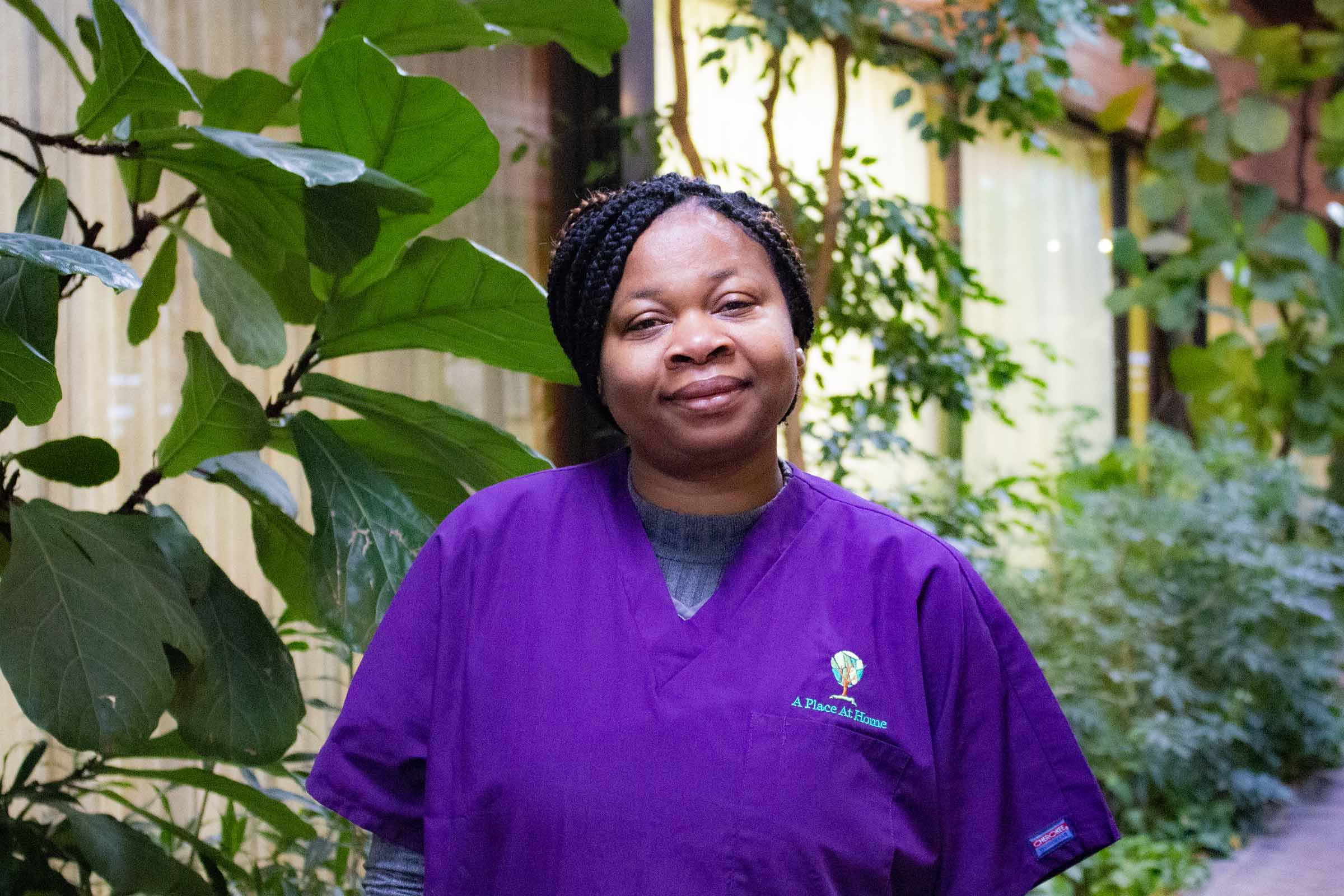Caregiver of the Month, Tina Edorh, continues to fill shifts through the Coronavirus pandemic. While our community takes steps to work from home, Tina understands that our most vulnerable population still needs care.
“I leave my worries behind when I go into a client’s home. I bring a positive attitude and try to help make their day better,” Tina shared. Tina has a very calm presence about her. She said that after her first visit with a client they keep requesting her back.
Tina also provided care when she lived in West Africa nearly a decade ago. She hasn’t seen her family back in Africa since she left, she moved to two different states, learned to speak French and English, earned her CNA and grew her family with two more children since moving to the United States.
Tina started with A Place At Home’s care team back in November 2019. “Tina goes above and beyond for her clients. She’s very responsive to office staff and has had great feedback from all clients that she visits,” said Dani Sloan, HR Director of A Place At Home – Omaha.
A Place At Home’s Coronavirus Prevention Plan
Caregivers are required to thoroughly clean their hands with an alcohol-based hand rub or soap and water immediately after entering a client’s home. They are given specific training on reducing the risk of illness. This training is revisited and emphasized regularly.
A Place At Home’s prevention plan is available for all caregivers in order to keep clients and themselves healthy. We also encourage all staff to follow the Centers for Disease Control and Prevention (CDC) and World Health Organization (WHO) guidance for preventing the spread of illness. Handwashing, remaining at home when sick and following all precautions when working with clients who are sick are a priority.
A crisis reveals our character. A Place At Home’s “We are CARE” philosophy is a commitment to our core values. Those values are Compassionate, Accountable, Respectful, and Ethical. We continue to practice those values and our top priority is providing the highest quality care for our clients.



